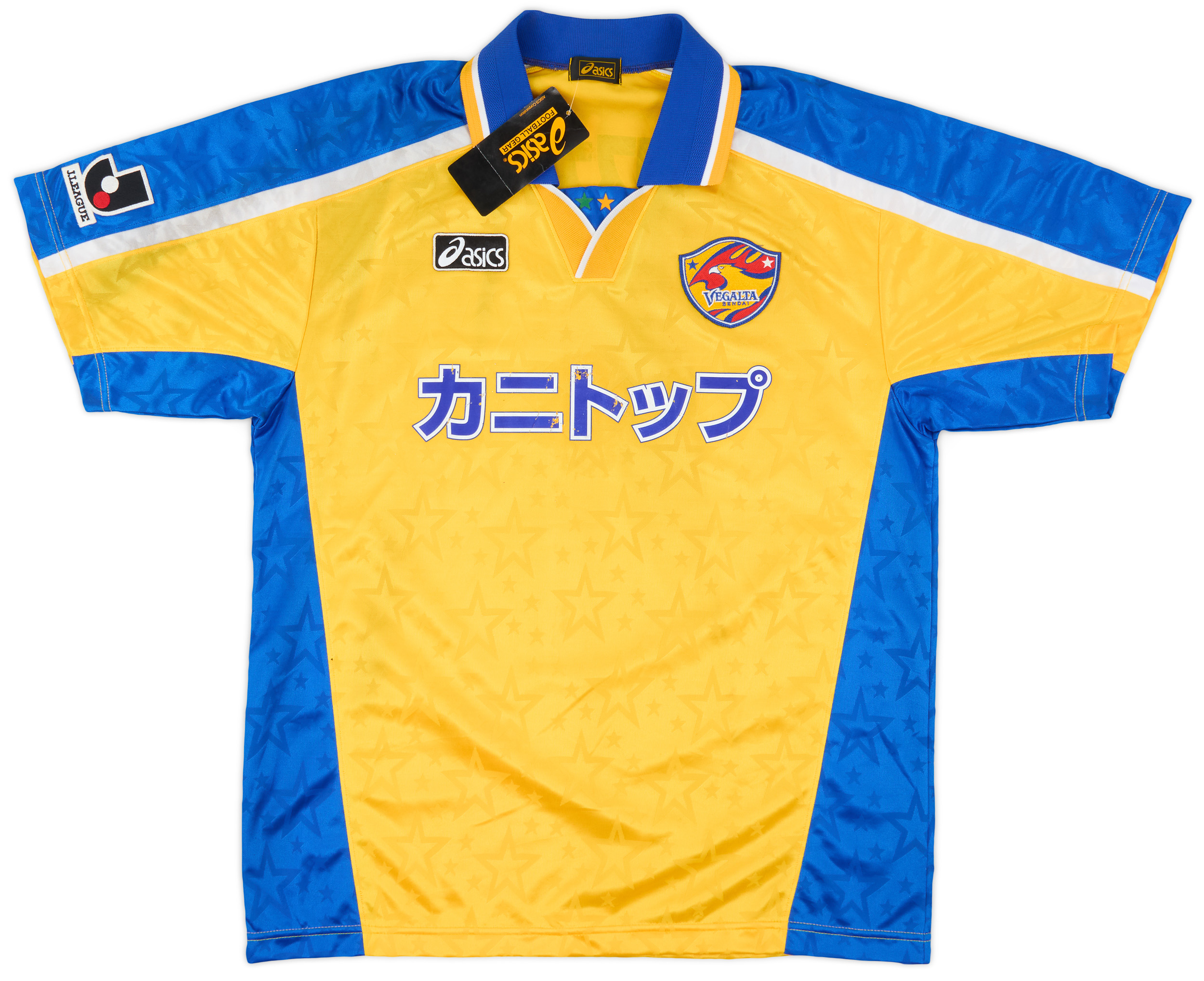Vegalta Sendai
Introduction Vegalta Sendai is a professional football club based in Sendai, Japan, with a rich history and an unwavering community spirit. Established in 1988, the club has become an integral part of the local culture and has garnered a dedicated fanbase over the years. Named after the Spanish word for “the wind,” Vegalta evokes the […]
2002-03 Vegalta Sendai Home Shirt (L)
194.99£ - ca: €230
1999-02 Vegalta Sendai Home Shirt - 9/10 - (M)
177.99£ - ca: €210
2011-12 Vegalta Sendai Home Shirt - 7/10 - (L)
82.99£ - ca: €98
Introduction
Vegalta Sendai is a professional football club based in Sendai, Japan, with a rich history and an unwavering community spirit. Established in 1988, the club has become an integral part of the local culture and has garnered a dedicated fanbase over the years. Named after the Spanish word for “the wind,” Vegalta evokes the relentless and energetic spirit of the region, reflecting its identity in both football and cultural significance.
Club History
The origins of Vegalta Sendai trace back to 1988 when the club was first founded as the concrete for the local football ecosystem in the region. Initially, the team was known as Sendai Kiyose FC and competed in lower divisions. In 1999, the club adopted the name Vegalta Sendai and gained promotion to the J. League’s second tier, known as the J. League Division 2, marking a significant milestone in its journey. After several years of restructuring and growing its talent base, Vegalta ascended to the J. League Division 1 in 2011.
One poignant moment in Vegalta’s history came after the devastating 2011 Tōhoku earthquake and tsunami, which heavily affected the Sendai region. Despite these adversities, Vegalta’s very first appearance in the top division brought a sense of hope and unity to a grieving city. The club’s efforts to uplift community spirits during such challenging times helped solidify its status as a beloved local institution.
Achievements
While Vegalta Sendai has yet to win a league championship in the J. League Division 1, the club has secured notable achievements that exemplify its competitive spirit. The team claimed the J. League Cup in 2013, their first major trophy, which provided an incredible boost not only to the club but also to its supporters. Vegalta also achieved a commendable runner-up status in the 2011 Emperor’s Cup, a significant national cup competition, and reached the semifinals in subsequent years.
Internationally, Vegalta’s foray into the AFC Champions League in 2014 allowed the club to gain exposure on a broader stage, showcasing its talent and competitive edge against some of Asia’s finest teams. The experience in the continental arena has been invaluable for the club, contributing to its growth and development.
Significant Players and Matches
Vegalta Sendai has been home to several notable players who have left their mark on the club’s history. One of the most recognized figures is former captain and midfield maestro Ryoichi Maeda, who was instrumental in guiding the team during their ascent in the J. League. His leadership and skill have made him a fan favorite, with his contributions helping to solidify Vegalta’s midfield control during key matches.
Another standout player is Takumi Kuroda, who played a critical role during the club’s rise to prominence. His tenacity on the pitch and knack for scoring crucial goals contributed significantly to the club’s performance in domestic tournaments. The club’s 2013 J. League Cup victory is particularly memorable, with Vegalta defeating the formidable Kashima Antlers 2-0 in the final, marking a historic moment for the club and its fans.
Cultural Impact
Vegalta Sendai’s influence extends beyond the pitch, deeply embedding itself within the local culture of Sendai. The club is known for fostering a strong sense of community, as evidenced by its initiatives to engage with fans and support local causes. Vegalta’s connection to the community is further exemplified by the “Purple and Gold” colors symbolic of the club, representing unity and resilience during tough times.
The club’s home ground, Yurtec Stadium Sendai, serves as the vibrant backdrop for significant gamedays, drawing crowds that create a festive atmosphere for players and supporters alike. For many, attending a Vegalta match is not just about football; it embodies a celebration of identity and pride for the region. The annual mascot “Vegalta-kun,” a whimsical character that has become the club’s emblem, adds a friendly and relatable touch, especially among young fans.
Conclusion
Vegalta Sendai epitomizes the essence of community spirit within the realm of Japanese football. With a remarkable history, committed fanbase, and notable achievements, the club stands as an important figure in the region’s cultural landscape. Despite not yet capturing the league title, Vegalta’s journey symbolizes perseverance, hope, and resilience. The club continues to inspire not just through its performances but also through its community-oriented initiatives, making it a cherished institution in the world of football history.


